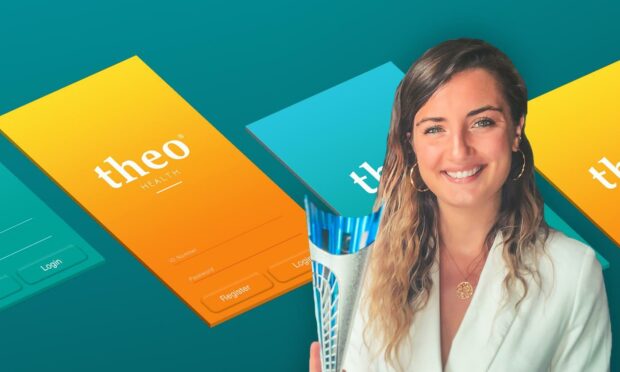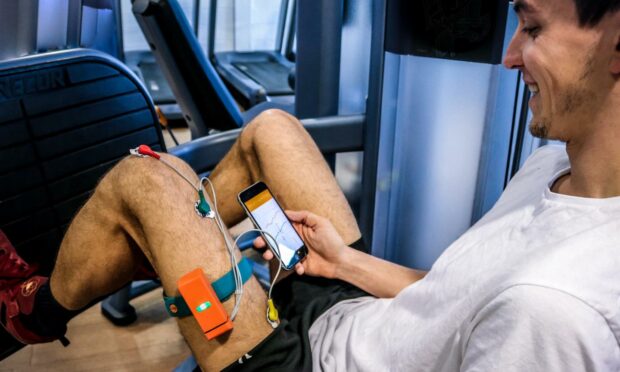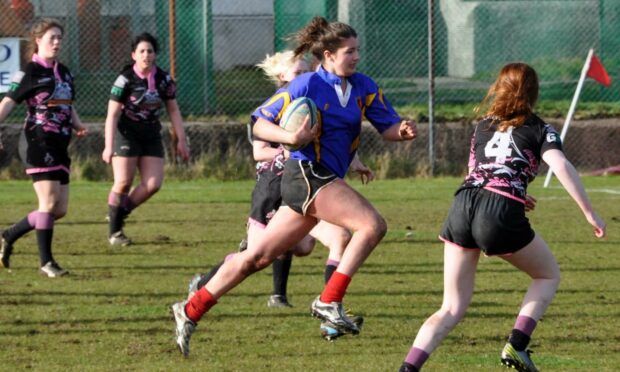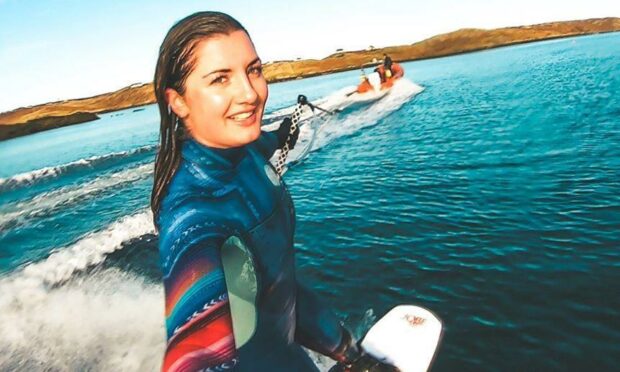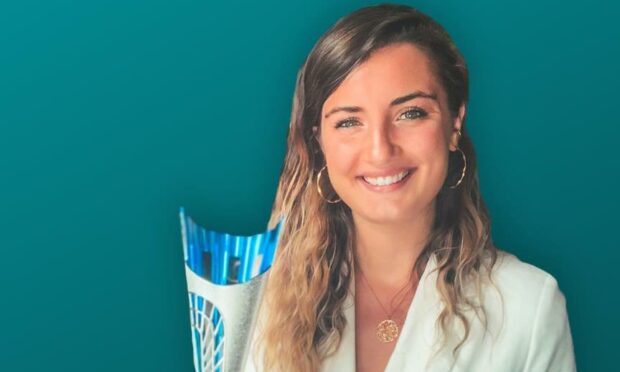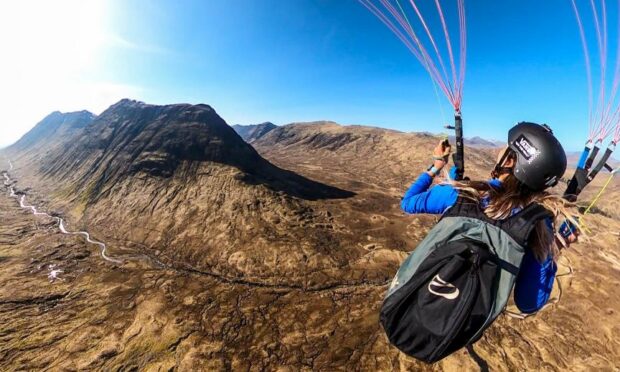A week before starting her degree at University of Dundee, talented footballer Jodie Sinclair had a life-changing injury.
Since Jodie could crawl, she had been an athlete dreaming of a football career.
While longboarding, she ruptured her anterior cruciate ligament which stripped her of her identity and led to a three-year recovery.
Her dream of going to university and joining a football team to start a professional career vanished.
She recalls: “Suddenly I was in uni, meeting new people who have no idea who I am, and I’m also there having no idea who I am, because a big part of me is now missing.”
Her three year recovery inspired her to create a device she wishes she had back then.
Mental and physical recovery
The product design graduate has created Theo, an item of smart clothing and an app that tracks muscle development.
Acting as a motivator for the injured user, it provides their physiotherapist with a greater insight into their recovery.
It also allows the user to track their mental health, something Jodie believes is just as important as the physical recovery.
“I faced depression for those three years,” she said.
“I was in quite a bad place, but I didn’t actually tell anyone.
“I had essentially been stripped of my identity and all I wanted was a physio to ask ‘are you OK?’, but it never happened.
“Having a Theo would have made a massive difference.
“When you’re going through physio, the full focus is on the physical injury with no focus on the mental side.”
Jodie had to wait a year for an operation on her knee, then go through 18 months of rehab with a physiotherapist.
Theo as a motivational device
Not seeing any progress in her recovery was demotivating for Jodie, as there was nothing in the present encouraging her.
Focusing on what was 18 months ahead of her and not the present made recovery though.
Jodie says: “The first six weeks especially, you see no progress.
“I’d gone from peak performance to being told to sit on a chair and try to lift my leg for half an hour – it was hugely demotivating.
“It was either too easy and I thought it’s not making a difference or it would be too painful and I thought I was doing something wrong.
“Not having anything to be motivated for other than in 18 months I’ll be better, I just thought what’s the point.
“But if I’d had a Theo, I could see when it was really easy that the muscles are working to a percentage and what else is happening.”
As her recovery period ended, the Duncan of Jordanstone student was on exchange in New Zealand.
When exactly 18 months had passed since her operation, she signed up for a football team.
She recalls: “The first game I played in Wellington was so frustrating because mentally I knew exactly what I was meant to be doing and where I should be.
“But the coordination, the path between my feet and my brain just weren’t matching up.”
Theo ready for testing
After coming back to Scotland, Jodie hasn’t signed up for a football team again.
Instead, the 25-year-old fills her time with speed-flying, longboarding, snowboarding and other board sports.
She has made amends with the longboard she injured herself on six years ago, and it is now her favourite.
As well as dedicating her time to sports, she has been working hard to get Theo ready for testing.
Soon she will have a prototype of the wearable so that physiotherapists can test it.
She says: “I want to prevent other people experiencing the same mental ordeal that I experienced after my injury.
“There’s definitely been a stigma around mental health and not wanting to struggle or want to show weakness.
“But we’re all human, everyone is having daily battles big or small.
“I think now, especially with Covid, we are all becoming a bit more human with each other and we are open to those conversations rather than seeing it as a weakness.”
